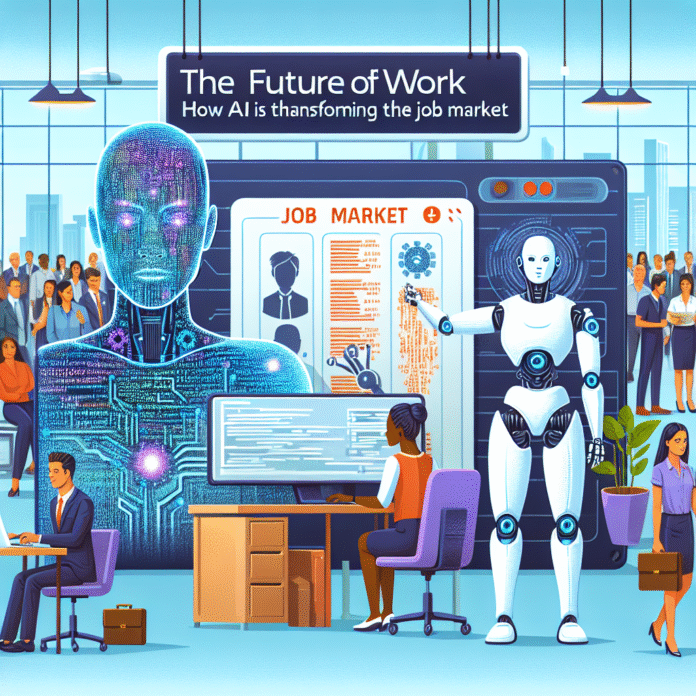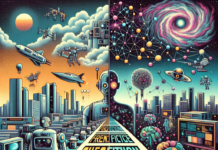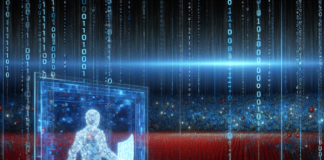The Future of Work: How AI is Transforming the Job Market
As we step further into the 21st century, the job market is undergoing a revolutionary transformation driven by advancements in artificial intelligence (AI). From automated customer service chatbots to sophisticated predictive analytics, AI is reshaping industries and redefining work. While the potential benefits of AI are immense, this transformation also poses challenges, prompting workers, employers, and policymakers to rethink how jobs are created, distributed, and executed.
The Rise of Automation
AI technologies are increasingly capable of performing tasks traditionally done by humans. Automation is no longer confined to manufacturing; it now permeates sectors such as finance, healthcare, and even creative industries. For instance, AI algorithms can analyze vast amounts of data to make financial decisions more quickly and accurately than human analysts. In healthcare, machine learning models assist in diagnosing diseases and personalizing treatment plans, improving patient outcomes.
As AI systems take on a burgeoning array of tasks, the demand for certain job roles is changing. Roles that involve repetitive, manual, or data-driven tasks are more susceptible to automation. On the flip side, new job categories are emerging, especially in AI development, data analysis, and machine management.
The Creation of New Jobs
While fears abound regarding job loss due to automation, AI also creates new opportunities. The World Economic Forum estimates that by 2025, 97 million new roles may emerge, particularly in fields like AI and machine learning, data analysis, and green technology. These roles often prioritize skills that machines can’t replicate—creativity, problem-solving, and emotional intelligence.
For instance, as companies adopt AI, the need for skilled professionals who can interpret AI-generated insights is rising. Jobs in ethics and governance are also becoming crucial, as organizations would need to ensure that AI usage aligns with moral and societal standards.
Reskilling and Upskilling the Workforce
As industries evolve, so too must the workforce. To adapt to AI’s presence, reskilling and upskilling initiatives are essential. Workers in at-risk roles need access to training programs that can facilitate their transition to new, tech-focused roles. This shift necessitates collaboration between educational institutions, governments, and businesses to create robust training frameworks.
Online learning platforms—such as Coursera, Udacity, and edX—are leading the charge, offering courses that allow individuals to learn at their own pace, making education more accessible. Corporations are also investing in employee development, often providing internal training sessions focusing on digital literacy and AI applications.
The Human-AI Collaboration
AI is not just about replacing jobs; it’s also about enhancing human capabilities. The future of work will increasingly involve collaboration between humans and AI systems. Instead of viewing AI merely as a workforce competitor, professionals should see it as a partner that can augment their abilities.
For instance, marketing teams can leverage AI analytics to better understand consumer behavior, while still applying their human creativity to craft compelling campaigns. In engineering fields, AI-driven simulations can help design processes, allowing engineers to focus on innovation and complex problem-solving.
Ethical Considerations and Policy Implications
As AI takes center stage in the job market, ethical considerations must be addressed. Issues such as bias in algorithms, data privacy, and job displacement are prime concerns that require regulatory frameworks. Policymakers need to create guidelines that ensure responsible AI development and use while safeguarding workers’ rights.
Initiatives such as universal basic income (UBI) or job transition support may be considered to cushion the effects of job displacement, ensuring that the workforce can adapt to these changes without excessive hardship.
Conclusion
The future of work is undeniably intertwined with AI advancements. As automation redefines job roles and nurtures new opportunities, the onus is on individuals, businesses, and governments to navigate this ever-changing landscape. With proactive reskilling, ethical considerations, and a focus on human-AI collaboration, the job market can evolve into a more dynamic, innovative, and equitable space. Embracing AI’s potential while addressing its challenges will be crucial for a prosperous future of work.







